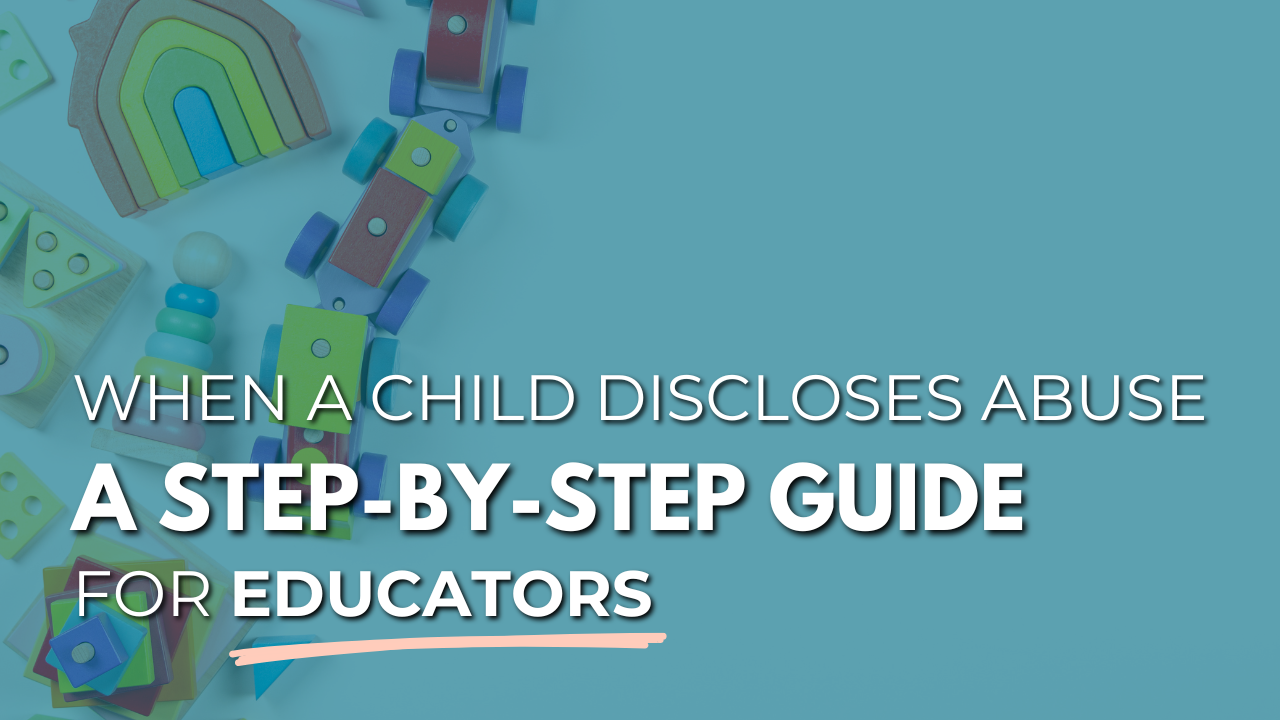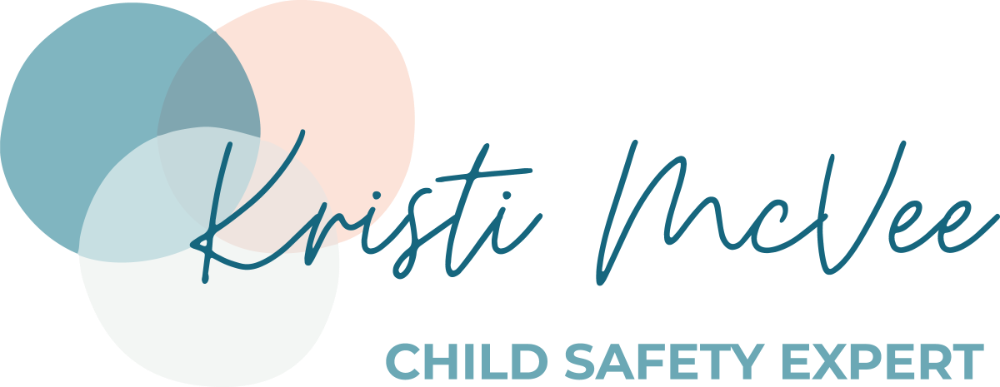When a child discloses unsafe touch at DayCare: a step-by-step guide for responding to sexualised behaviours for educators
Sep 08, 2025
Every educator dreads it.
A child whispers: “They touched me on my private parts.”
Or you see two children in a situation that crosses boundaries.
It can be awkward. It’s often confronting and it can feel overwhelming if you don't know how to handle it.
But here’s what I want you to remember: your response in those next few minutes sets the tone for everything that follows. The child’s trust, the centre’s credibility, even whether further abuse is identified or hidden.
This is not the time to freeze, minimise or brush it under the rug. Immediate action is always the best policy.
1. Stay calm, believe them and protect first.
Children rarely make this up. If they say it happened, your job is to believe first, investigate later.
What to say:
-
“Thank you for telling me.”
-
“I believe you.”
- "Well done on remembering your body safety rights, you are so brave for telling an adult straight away."
What not to say:
-
“Are you sure?”
-
“Don’t tell anyone.”
-
“We’ll keep this between us.”
- "They didn't mean it."
Your calm, steady response teaches the child: Adults will listen. Adults will protect me.
2. Protective interruption
If you witness something or are told about unsafe touch between children, step in immediately.
This isn’t about shaming or punishment. It’s about boundaries and safety.
Say something clear and neutral, like:
-
“Hands to ourselves, thanks.”
-
“Private parts are private. No one touches them and we don't touch other people's privates”
Then separate the children and ensure close supervision for the rest of the day.
Immediate interruption matters because it shows every child: unsafe behaviour will be stopped right away.
3. Document immediately
Write down:
-
What the child said - word for word.
-
What you observed.
-
Time, date, location, and who was present.
Stick to facts, not opinions. This record becomes crucial if there are further incidents or mandatory reports.
4. Inform leadership straight away
Don’t sit on it. Don’t wait until the end of the day.
Report to your centre director or designated child safety officer immediately. If you delay, you risk minimising the child’s experience and failing in your duty of care.
5. Communicating with Parents & Caregivers
This is where many centres get nervous and usually stuff up because silence or vague language erodes trust. Parents deserve clear, timely communication. When a centre handles things calmly, clearly and with clarity, they show they are safe, prepared and trustworthy.
When speaking to the parent of the child who disclosed:
-
Be direct, calm and factual.
-
Example: “Your child shared with us today that another child touched them on their private parts. We responded immediately to stop it, ensured they were safe, and documented what they told us. We’d like to meet with you as soon as possible to talk about next steps.”
When speaking to the parent of the child who did the touching:
-
Avoid language that shames or labels their child.
-
Example: “We had an incident today where your child touched another child’s private parts. We interrupted immediately, reminded all children about body safety rules and put protective supervision in place. We’d like to meet with you to discuss how we can work together on this.”
Key points to remember:
-
Always inform parents on the same day.
-
Be transparent about what happened and what was done.
-
Never downplay or dismiss the incident.
6. Mandatory reporting & further action
If there are concerns that the behaviour is persistent, coercive or a red flag for abuse in the child’s home environment, you must follow mandatory reporting requirements.
This is not optional. It’s child protection.
7. Post-Incident Review
After the initial response, centres should meet as a team to ask:
-
Where was supervision lacking?
-
How can environments be adjusted to reduce risk?
-
Do staff feel confident in body safety responses?
This isn’t about blame. It’s about future-proofing your centre.
8. Keep body safety education front and centre
Don’t just manage the incident and move on. Use it as a teaching moment to reinforce body safety with all children:
-
Everyone has the right to feel safe.
-
Private parts are private.
-
Unsafe touch is never a secret.
Make body safety language part of everyday practice - not just after an incident.
Final Word for Educators
Incidents like this will happen. Kids are not robots, they are constantly testing and experimenting and it's how we respond that sets the boundaries for their future safety. It can feel awkward and confronting, but they are also opportunities.
Handled well, children learn:
-
Adults will protect them.
-
Their voice matters.
-
Boundaries are real and respected.
Handled poorly, children learn the opposite - that silence and minimisation rule.
Your job is to act. Quickly. Clearly. Confidently.
Because child safety is not about adult comfort. It’s about leadership.
⚡ Educators = immediate action, open communication and body safety education must be non-negotiables in your centre.
👉 If you or your team don’t feel confident having these conversations or handling disclosures, my Early Childhood Educators Course will walk you through exactly what to do - from everyday body safety chats to responding to disclosures with calm authority.
📌 Learn more and enrol here
K x


